There have been so many cinematic retellings of the sinking of this legendary ship, dating back as far as the silent era, but one of the most well-regarded adaptations of the story would be the 1958 British film A Night to Remember, which is still widely considered to be the most historically accurate cinematic portrayal of the sinking, in fact, it was that film that inspired James Cameron to graft an epic romance to this unforgettable tale, which resulted in the most successful disaster film ever produced.
With his telling of the sinking of the Titanic, writer/director James Cameron went with the rather clever narrative device of bookending this historical event with modern-day segments, dealing with salvagers diving on the wreck to find a famously expensive jewel known as “The Heart of the Ocean” as this not only allowed some modern context to what is now known about the sinking but it also introduced a MacGuffin that would drive some of the film’s plot forward. The man looking for this lost diamond is marine salvage expert Brock Lovett (Bill Paxton), who is rather disappointed when his submersibles recover the safe that supposedly held the diamond, but when they open it all they discover of note is a nude drawing of a woman in the drawing wearing the diamond. This leads to 106-year-old Rose Dawson Calvert (Gloria Stuart) seeing a news report about the treasure hunt and she quickly informs them that she is the woman in the sketch. Needless to say, Brock is very interested in her story so she is brought aboard the research ship to recount the events of the sinking, but what’s missing here is the dialogue that led her to be flown out to the site in the first place. Did it go something like this:
Rose: “I was just wondering if you had found “The Heart of the Ocean” yet, Mister Lovett?”
Lovett: “All right, you have my attention Rose. Can you tell us who the woman in the picture is?”
Rose: “Oh yes, the woman in the picture is me.”
Lovett: “Fantastic, do you know where the diamond is?”
Rose: “As a matter of fact I do, but I want you to fly me out to your ship so that I can spend three hours regaling you with tales of my shipboard sexual exploits before tossing it into the Atlantic.”
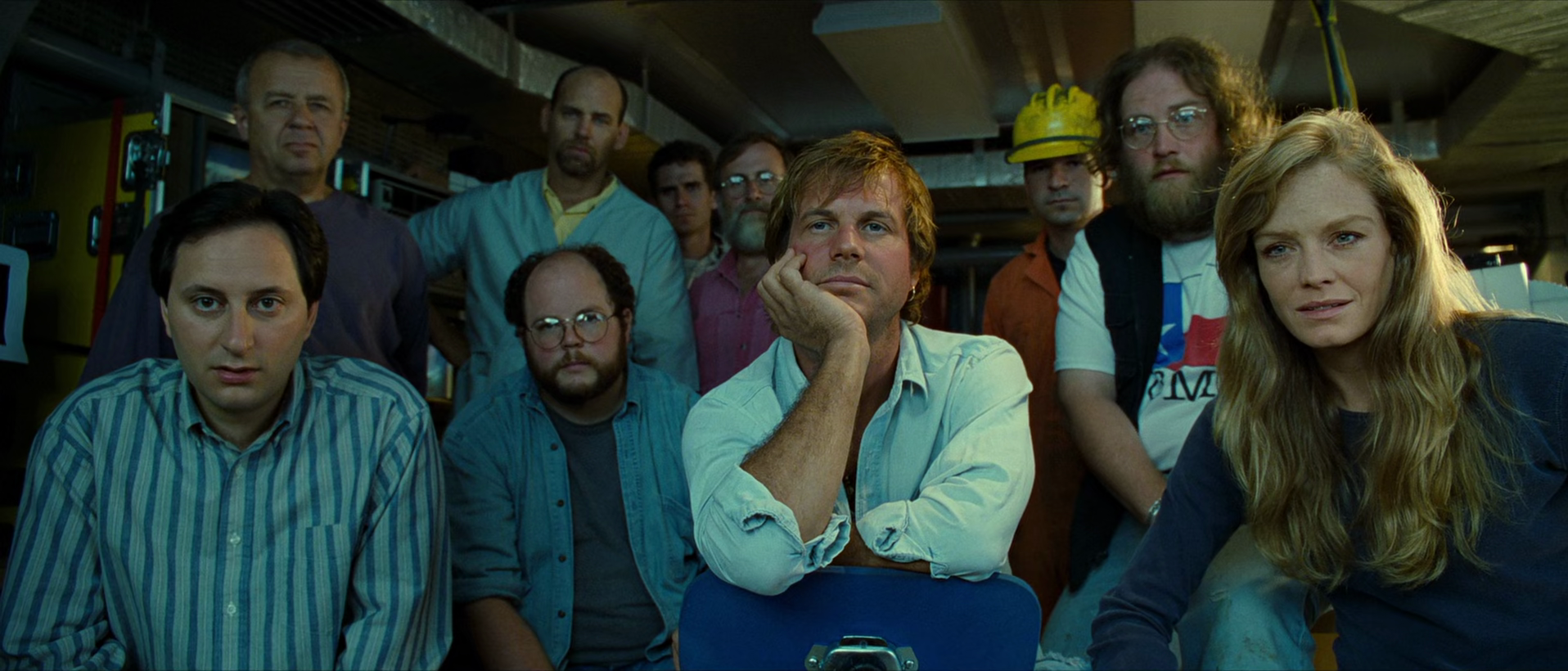 This is much steamier than doing it via conference call.
This is much steamier than doing it via conference call.
Re-watching this movie I found it odd that at no point in the film do we ever see Brock Lovett asking straight-out if Rose knows where the diamond is located, and if he did ask we then have to assume that she lied to him so she could get this free trip out the wreck site just so she could secretly heave the jewel overboard. And sure, Brock is a bit of a heartless graverobber, who never truly understood the story of the Titanic “I never got it. I never let it in,” but does this excuse Rose for wasting everyone’s time and money just so that she could have some closure of her own? Of course, this is simply a framing device that James Cameron utilized to tell his version of the most famous ocean disaster in history and the fate of Brock Lovett is totally irrelevant, what Cameron was interested in telling was an epic romance in the vein of Romeo and Juliet with the sinking of the Titanic as an action-packed backdrop.
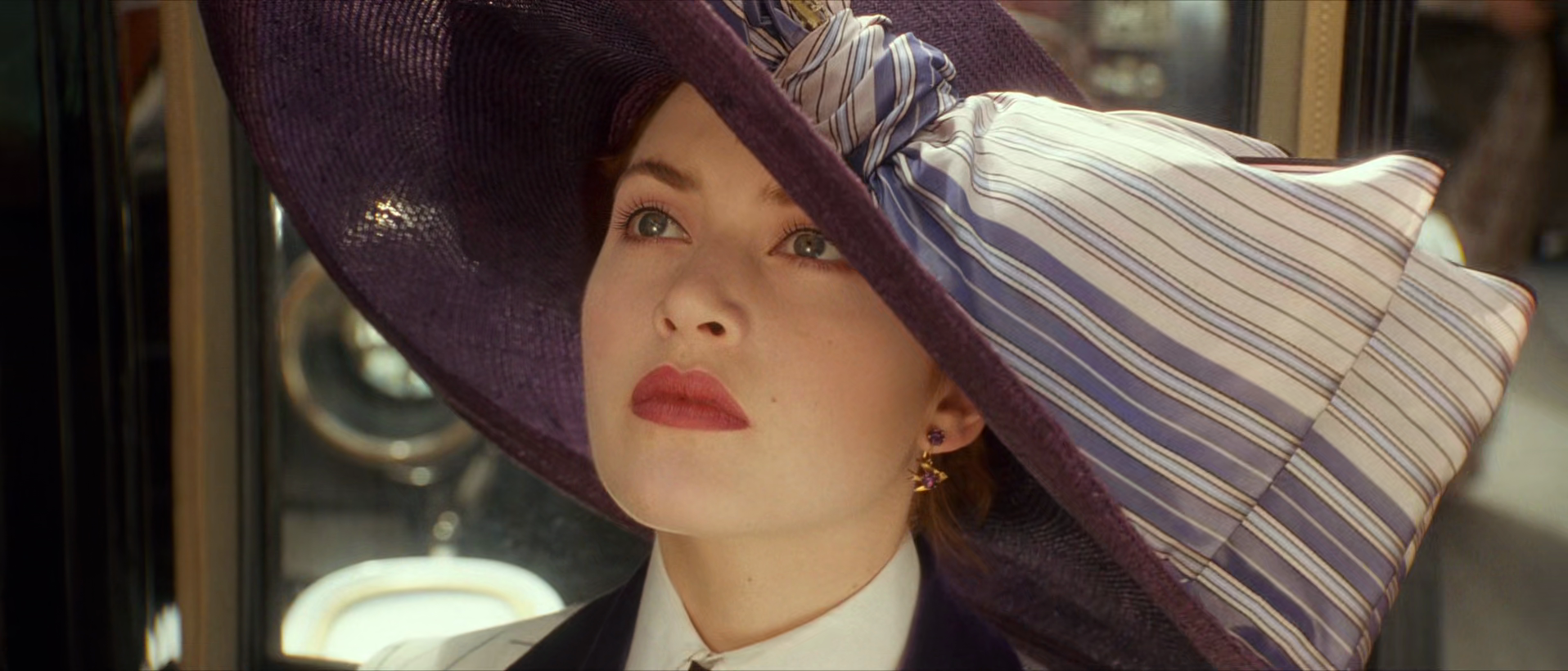 The story of a woman with a really fantastic hat.
The story of a woman with a really fantastic hat.
The basic plot of Titanic is fairly simple, a young Rose DeWitt Bukater (Kate Winslet) is being somewhat forced to marry millionaire Caledon Hockley (Billy Zane), an arrogant bully who goes from jerk to full-own villain throughout the course of the film, and then Rose meets with Jack Dawson (Leonardo DiCaprio) who is a poor but well-travelled individual that just so happened to win tickets aboard the RMS Titanic. As the movie goes along we will deal with Rose's widowed mother (Frances Fisher), the one pushing Rose into this terrible marriage, as their once prestigious family is now broke, and Spicer Lovejoy (David Warner) the valet/bodyguard of Cal who looks to be taking time off from tying damsels in distress to railway tracks. Cameron sprinkles his script with these fictional characters as they interact with actual passengers and crew, so we get Rose making comments to ship designer Thomas Andrew (Victor Garber) about why the ship doesn’t seem to have enough lifeboats, and during the sinking, we will see Captain Smith (Bernard Hill) ineptly wandering around the deck like a ghost being haunted by the knowledge of how history will look back on his actions. 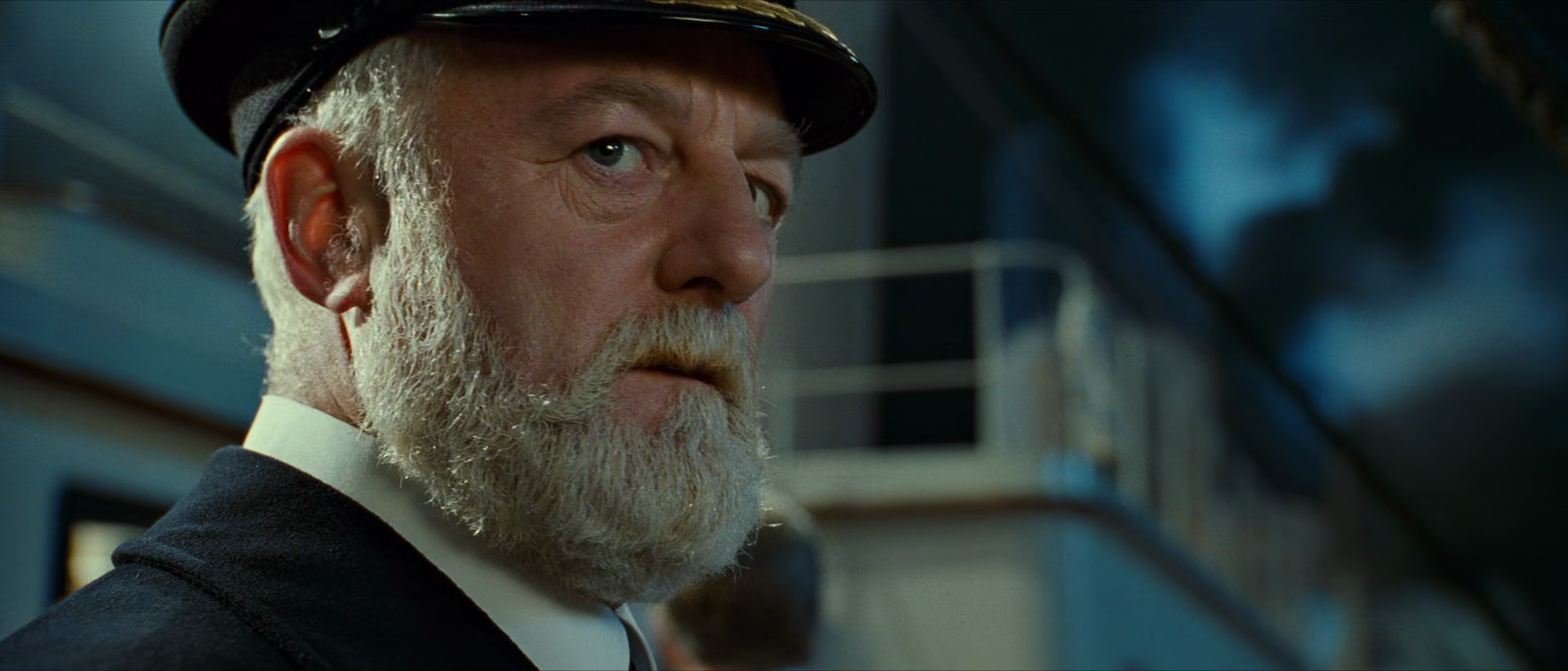 Note: Billy Zane’s character may have been a villainous jerk but at least he wasn’t responsible for more than 1,500 deaths.
Note: Billy Zane’s character may have been a villainous jerk but at least he wasn’t responsible for more than 1,500 deaths.
The film gets a lot of mileage out of the star-crossed lover's theme and the disparate class distinction between the two, with the Unsinkable Molly Brown (Kathy Bates) trying to help Jack fit in while dining in the First Class Lounge, and then Rose joining Jack for a party with the third class passengers in steerage, but when the film reaches the half-way point Cameron settles down to gives us a solid disaster film as his depiction of the sinking is nothing less than spectacular and while some of the CGI dates this film the bulk of the action is done with practical effects that wonderfully blend the spectacular visuals with that old-fashioned melodrama. Simply put, James Cameron's recreation of the sinking of the RMS Titanic liner is one of the most stunning pieces of cinema to ever escape the confines of Hollywood and deserves every bit of acclaim it received, well, maybe not eleven Oscars but the film is pretty damn great, even if he still felt the need to litter his script with standard disaster tropes and cliches that doesn’t quite fit with the historical events, for example, once again Bruce Ismay (Jonathon Hyde) is depicted as a boorish coward who urged the Captain to increase speed and thus increase publicity about the maiden voyage, despite there being no evidence of him doing any such thing, and then him slinking aboard one of the lifeboats is completely untrue.
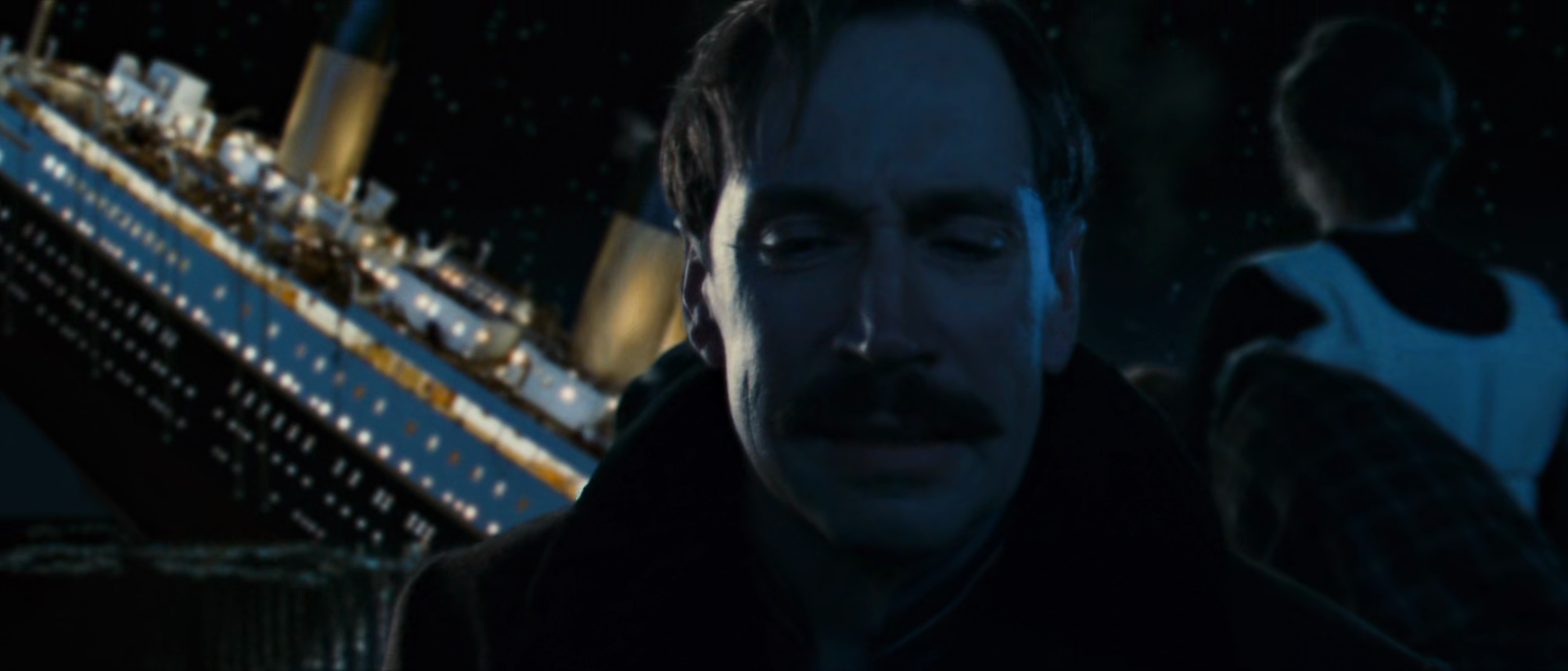 Unfairly branded a coward simply for surviving.
Unfairly branded a coward simply for surviving.
Stray Observations:
• It’s never explained how a submersible rover was able to bring that safe up through the wreckage of the Titanic and to the surface, that safe would have weighed several hundred pounds at least.
• Molly Brown loans Jack her son's tuxedo so he can have dinner with the first-class crowd but as her son wasn’t onboard why did she have any of his clothing on board the Titanic?
• In this film, Bernard Fox plays Colonel Archibald Gracie IV and Fox had previously portrayed Frederick Fleet in the 1958 film A Night to Remember, who was one of the lookouts who spotted the iceberg on that fateful night.
• David Warner plays the villainous valet/bodyguard in this film but he also appeared in the 1979 TV miniseries S.O.S. Titanic where he played a science schoolteacher who survived the sinking.
• Many versions of the Titanic story show 3rd Class passengers locked below decks, even though this was not the case, yet it does add a nice bit of social class commentary.
• Officer William Murdoch is portrayed as a weak character who takes bribes to get a spot in a lifeboat and after shooting an agitated passenger he turns the gun on himself. In reality, he died a hero giving up his own life jacket and eventually drowning.
• Rose tosses the "Heart of the Ocean" overboard despite the fact that it would be worth around half a billion dollars and not only could it have set all her descendants up for life even if she wanted no part of it she still could donate it to various charities or many other humanitarian efforts.
• The movie ends with 106-year-old Rose presumably dying in her sleep and her soul being reunited with Jack Dawson and the others who died when the Titanic went down, a truly romantic moment, but as she did eventually marry what about the soul of her actual husband, doesn’t he warrant a visit?
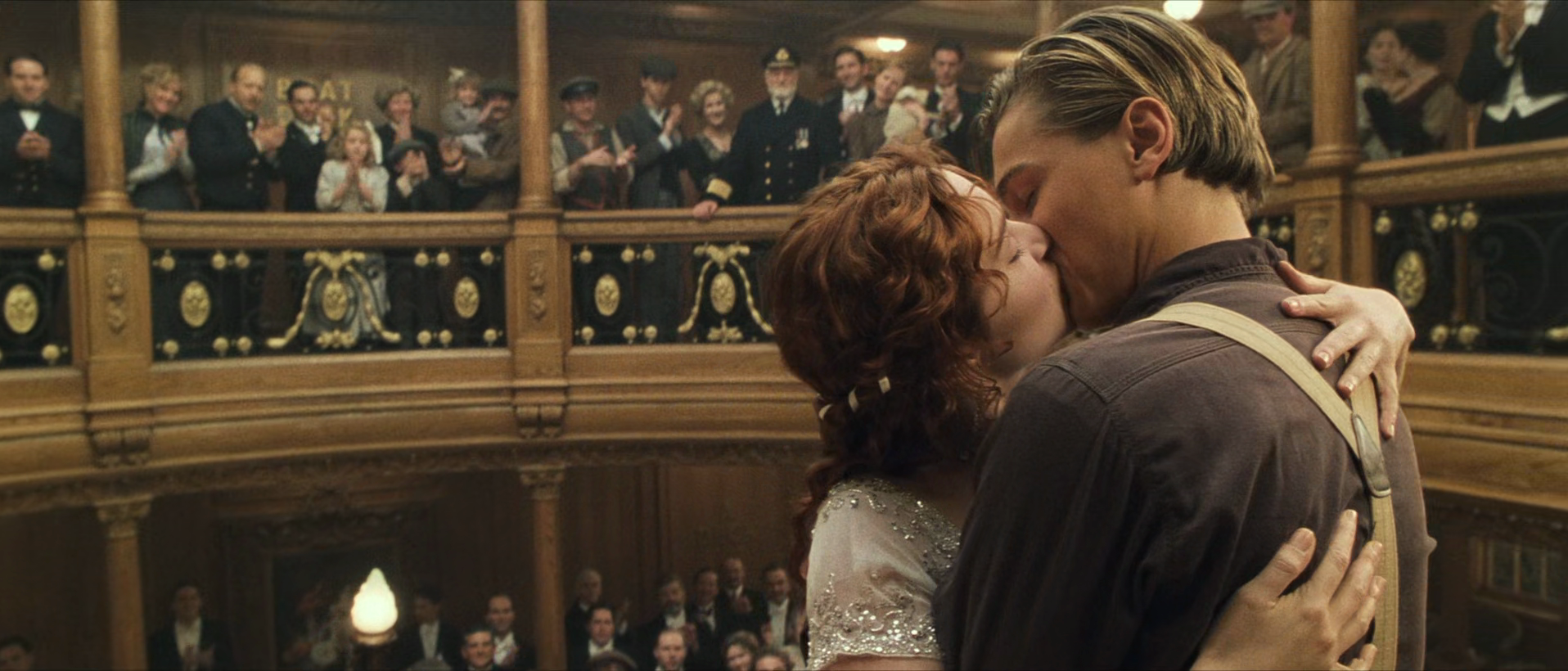 I guess a young Leonard DiCaprio trumps any other relationships.
I guess a young Leonard DiCaprio trumps any other relationships.
One of the most interesting elements of James Cameron’s Titanic is how so many people thought it was going to be a box office bomb, with such inciteful reasoning as “Who is going to see a movie when everyone knows how it ends?” and this was fuelled by the ever-increasing budget that reached $200 million dollars, more than the cost of the actual Titanic, and this led 20th Century Fox making a partnership deal with the Paramount to sure the burden, a deal I’m sure the executives of Fox are still kick themselves over. This was the kind of epic motion picture that Hollywood was known for making in the 50s and 60s but with Biblical epics like The Ten Commandments and Ben Hur in the rear-view mirror, and box office bombs like the 1963 epic Cleopatra almost bankrupting the studio, that kind of big-budget storytelling had gone out of fashion – we are now currently living through a new era of epics only now involving superheroes instead of historical events – but it was Cameron who showed the world that this kind of thing could still pay off with the right blend of romance and tragedy.
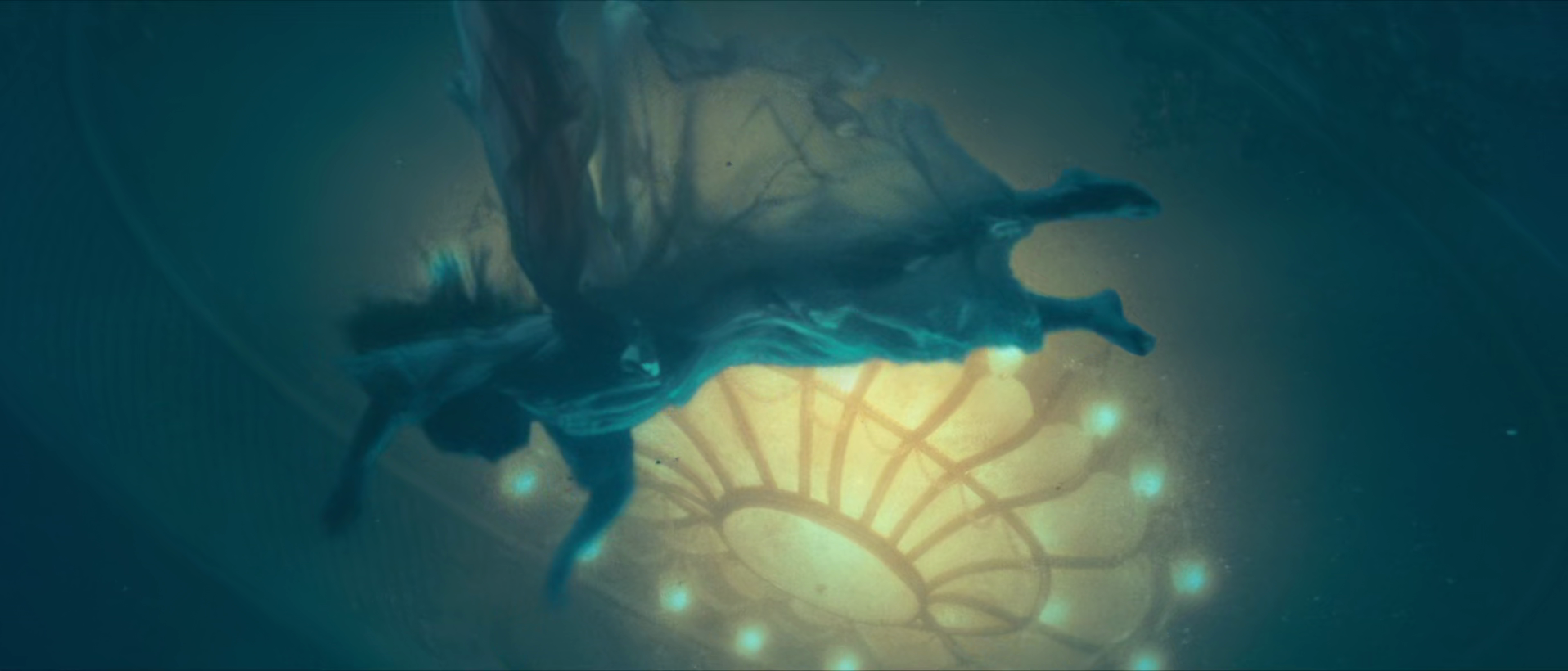 This film has some beautiful and dark moments.
This film has some beautiful and dark moments.
The performances are exceptional, with DiCaprio and Winslet delivering some of the best work of their careers. Their chemistry is palpable, and their love story is both poignant and tragic. The supporting cast is also excellent, with standout performances from Billy Zane as the arrogant and entitled Cal Hockley, and Gloria Stuart as the elderly Rose, whose memories of the Titanic serve as the framing device for the film. The score by James Horner is one of the most memorable in cinematic history, perfectly capturing the film's emotional highs and lows and the song "My Heart Will Go On" by Celine Dion became an instant classic, winning an Academy Award for Best Original Song and remains a beloved staple of pop culture, even if it may have had a little too much airtime. The film is a technical marvel, with stunning visual effects that bring the ship and its passengers to life. The attention to detail is incredible, from the opulent interiors of the first-class cabins to the gritty realism of the below-deck areas. Cameron's direction is masterful, keeping the film's pacing tight and the tension high throughout.
In conclusion, Titanic is a timeless classic that has earned its place in the pantheon of great films and despite its nearly three-hour runtime it never feels bloated or tedious. Every moment of the film serves a purpose, and every scene is crafted with care and attention to detail. It's a sweeping epic that takes you on an emotional journey, leaving you breathless by the time the credits roll. With its stunning visuals, incredible performances, and unforgettable score, it's a cinematic experience that should not be missed.
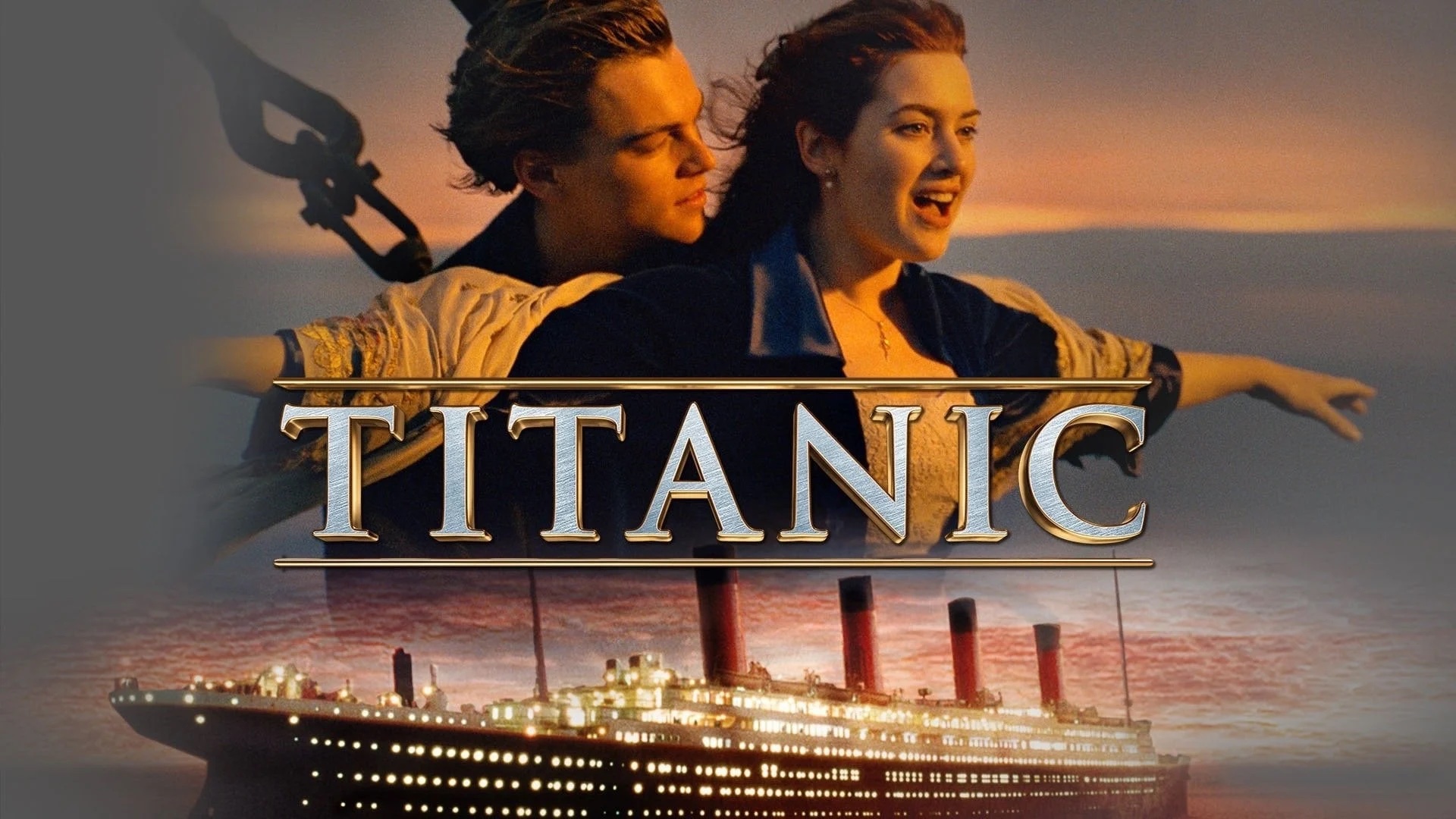
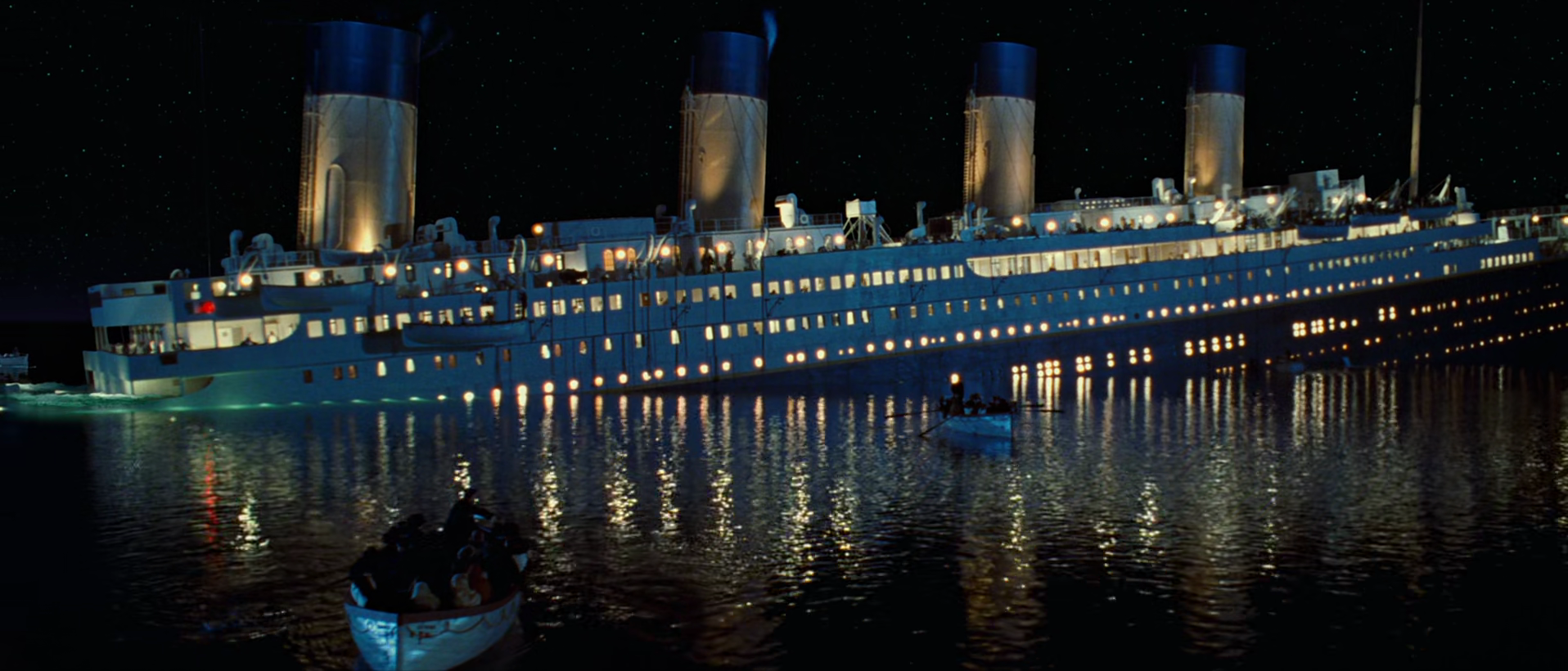

No comments:
Post a Comment